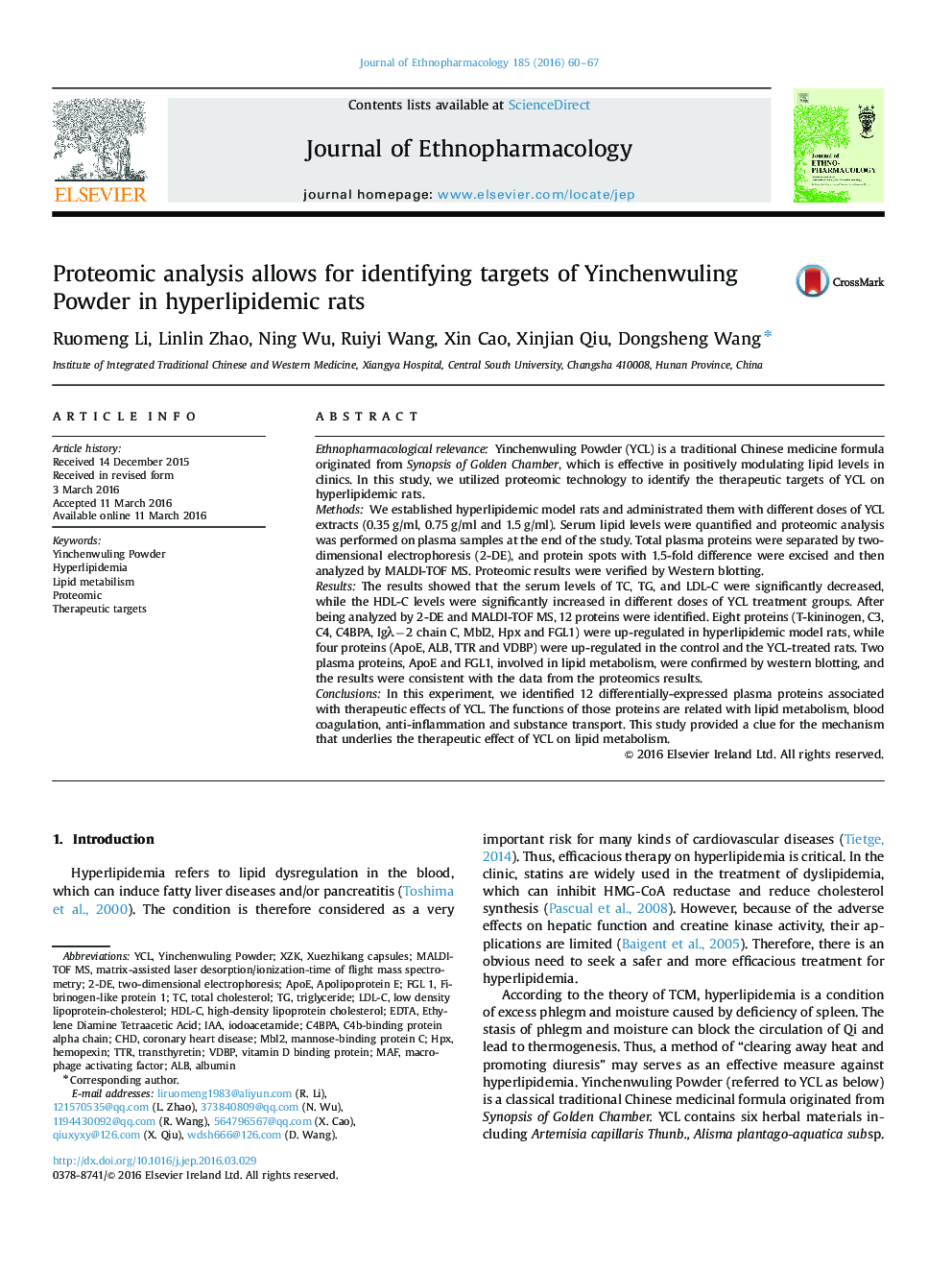| کد مقاله | کد نشریه | سال انتشار | مقاله انگلیسی | نسخه تمام متن |
|---|---|---|---|---|
| 2544827 | 1560377 | 2016 | 8 صفحه PDF | دانلود رایگان |

Ethnopharmacological relevanceYinchenwuling Powder (YCL) is a traditional Chinese medicine formula originated from Synopsis of Golden Chamber, which is effective in positively modulating lipid levels in clinics. In this study, we utilized proteomic technology to identify the therapeutic targets of YCL on hyperlipidemic rats.MethodsWe established hyperlipidemic model rats and administrated them with different doses of YCL extracts (0.35 g/ml, 0.75 g/ml and 1.5 g/ml). Serum lipid levels were quantified and proteomic analysis was performed on plasma samples at the end of the study. Total plasma proteins were separated by two-dimensional electrophoresis (2-DE), and protein spots with 1.5-fold difference were excised and then analyzed by MALDI-TOF MS. Proteomic results were verified by Western blotting.ResultsThe results showed that the serum levels of TC, TG, and LDL-C were significantly decreased, while the HDL-C levels were significantly increased in different doses of YCL treatment groups. After being analyzed by 2-DE and MALDI-TOF MS, 12 proteins were identified. Eight proteins (T-kininogen, C3, C4, C4BPA, Igλ−2 chain C, Mbl2, Hpx and FGL1) were up-regulated in hyperlipidemic model rats, while four proteins (ApoE, ALB, TTR and VDBP) were up-regulated in the control and the YCL-treated rats. Two plasma proteins, ApoE and FGL1, involved in lipid metabolism, were confirmed by western blotting, and the results were consistent with the data from the proteomics results.ConclusionsIn this experiment, we identified 12 differentially-expressed plasma proteins associated with therapeutic effects of YCL. The functions of those proteins are related with lipid metabolism, blood coagulation, anti-inflammation and substance transport. This study provided a clue for the mechanism that underlies the therapeutic effect of YCL on lipid metabolism.
Figure optionsDownload high-quality image (153 K)Download as PowerPoint slide
Journal: Journal of Ethnopharmacology - Volume 185, 5 June 2016, Pages 60–67